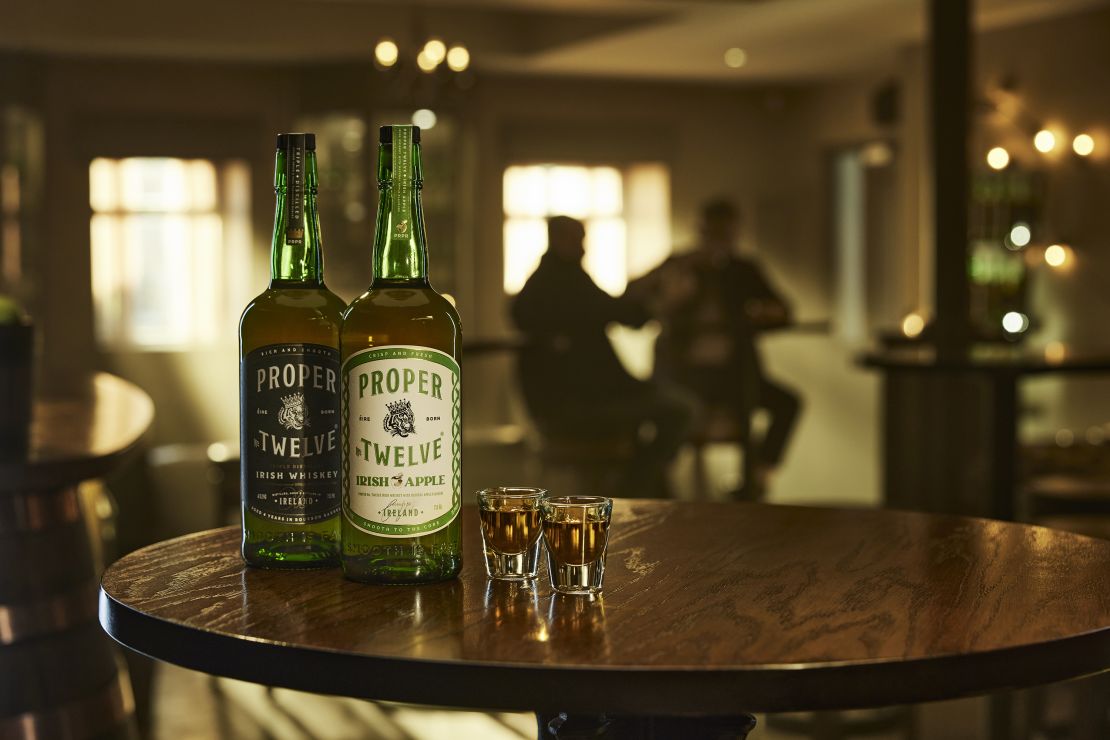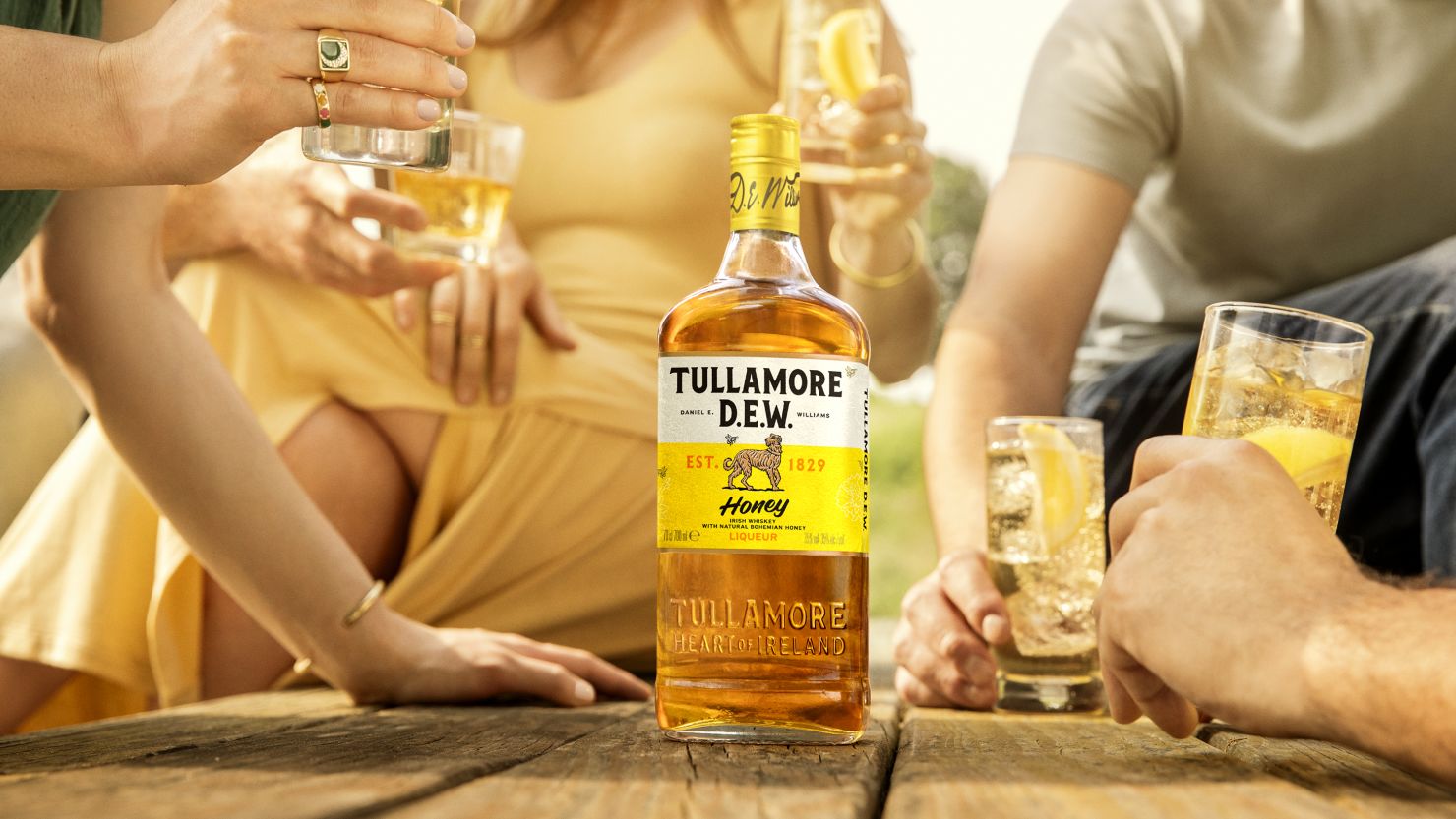On St. Patrick’s Day, throwing back an Irish whiskey might taste different than it used to.
Flavored whiskey from American and Canadian companies isn’t novel — Southern Comfort, Fireball, Crown Royal apple and Knob Creek maple have been liquor store staples for decades — but it’s now attracting the attention of the Irish, a once inconceivable thought at distilleries that have prided themselves on whiskey’s taste itself being the draw.
“Whiskey purists have talked about flavored whiskey as an overall challenge to the category and in a negative way because they think it kind of defeats the purpose of why you’re distilling high-quality liquid and then putting it into a barrel,” said Lander Otegui, chief marketing officer for Proximo, the spirits company that owns Irish stalwarts Bushmills and Proper No. Twelve.
However, that’s changing among the Irish, with Jameson jumping on the trend a few years ago with two flavors. Jameson Cold Brew rolled out in 2020 followed by orange two years later. Both remain on sale and are attracting new drinkers to the brand.
Flavored whiskey is a $1.5 billion category and accounts for 20% of all US whiskey sales. In the past few years, flavored whiskey sales have outpaced unflavored whiskey, according to Southern Glazer’s distributors. Since 2019, the number of flavored whiskeys on shelves soared 37%, surpassing 1,000 options.
And more are joining: Conor McGregor’s Irish whiskey, Proper No. Twelve, recently debuted an apple-flavored version, which has performed strongly for the brand since its launch a year ago.
That wasn’t without hesitation from the brand, Otegui admits. They “weren’t very convinced” about launching a flavored whiskey. But with younger drinkers gravitating toward punchier flavors, Irish brands “have to be much more flexible than their historical beliefs have been,” he told CNN.

Another Irish distillery is leaping into the trend. Tullamore D.E.W., for the first time in its 200-year history, released in the US last month a flavored whiskey, choosing honey, ahead of St. Patrick’s Day.
Honey was an easy choice, said Paul Basford, US president for Tullamore D.E.W.’s parent company, William Grant and Sons, which also owns Glenfiddich whisky and Hendrick’s gin.
First off, it’s familiar to drinkers, thanks in part to flavored American whiskey “doing very strong things in the market, so it’s a natural extension for the Tullamore D.E.W. brand to play in that footprint,” Basford told CNN. (Jack Daniel’s and Jim Beam have had honey on shelves for years, and sell strongly.)
“There’s a propensity to drink more flavors, and there’s some very different flavors out there,” he said, singling out banana and cinnamon, but the brand “decided going on something a bit more traditional” that fits in with Tullamore D.E.W.
Initial sales have been strong. Basford predicts it will be “pretty big this year, and even bigger next year” with honey encompassing 20% of Tullamore D.E.W.’s total sales in the next year and projected to increase to 35% over time.
Honey and apple are among the top sellers in the whole flavored whiskey category, according to NIQ data given to CNN, as well as cinnamon, peach and peanut butter.
“The US consumer has a significant appetite for flavor in general, and the spirits business is no exception to that,” Jon Berg, vice president of beverage alcohol thought leadership at NIQ, told CNN.
However, he warned that flavors “tend to have a sales fall off time frame, based on the trial and repeat rates that shoppers are willing to give a product.”
Changing tastes
Both companies face similar challenges of attracting drinkers in their mid-twenties who want different flavors compared to older generations, a trend that accelerated following the pandemic.
“After Covid-19, the whole consumer base became more promiscuous, wanting to be experimental and less about what they had before,” Basford said. And since younger drinkers aren’t often whiskey aficionados, having a flavor helps “people coming into the category for the first time.”
Otegui said that younger consumers are “open to exploring new flavors within the spirits category.” A flavored whiskey acts as an entry point for someone that wants to drink whiskey, but might be intimidated by the spirit’s taste, he added.
Flavors are “a good way to get them into the brand and into the whiskey category, and certainly into Irish whiskey,” Basford said.









